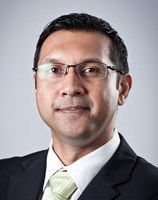There are several common mistakes made in the operation of trusts that have been set up for estate planning purposes, to protect assets from creditors and for potential tax savings.

Sumesh Somaroo
So says Sumesh Somaroo, a partner at the Durban office of audit, advisory and tax firm, BDO South Africa, who warned that the verification of trust tax returns by SARS was on the increase and that it was important for people to get their trusts in order.
Somaroo explained the most common mistake made: "Trusts are generally established by donors who donate their personal assets to the trust or sell their assets to the trust to reduce the value of their estate, thus reducing their estate duty liability upon death. Once this transaction is completed, the assets then belong to the trust and are under the control of the trustees. The mistake that we see in practice is that the donor continues to control the asset with no input by the trustees. The donor continues to decide what each beneficiary receives as a distribution from the trust, as well as how and where to invest the trust assets. This casts doubt on the validity of the trust."
Somaroo identified four other common mistakes:
In many cases, the trust does not keep a proper set of minutes of meetings nor of distributions declared.
The distribution decision is sometimes made after the trust's year end but is effective at the year end.
Some trusts do not have a bank account and certain transactions are recorded via journal entries, with no movement of cash to or from the trust.
Although all trusts are regulated by a trust deed, not all decisions taken are in compliance with the trust deed.Somaroo went on to explain that many trusts were discretionary trusts, meaning that the trustees controlled the assets and income accruing to the trust.
"In a discretionary trust the beneficiaries are only entitled to the assets and income of the trust once the trustees have distributed these assets and any income to the beneficiaries. Prior to the distribution, the assets and income remain in the trust, under the control of the trustees."
"It should also be noted that all decisions taken by the trustees must be in the best interests of the beneficiaries," he said.
Somaroo said that not only was SARS focusing more on trust tax returns but the tax return itself had become more detailed.
He offered seven tips for people to fix their trusts:
Have your trust deed scrutinised by a professional to ensure it is compliant with the Trust Property Control Act. It should clearly identify the donors, trustees and beneficiaries and it should be clear what decisions the trustees can make in terms of protecting and investing the assets of the trust.
Ensure that your trust has at least one independent trustee.
Make sure that the trustees comply with the trust deed. For example, if the trust deed says that annual financial statements must be prepared or that the statements need to be audited, then this must be done.
Open a bank account for the trust.
Ensure that the minutes of meetings are recorded, signed by all trustees and pasted in the minute book.
Make sure that all resolutions for distributions, acquiring or disposing assets are recorded in writing, signed by all trustees and pasted in the minute book.
Repayment of loan accounts and capital injections into the trust should be supported with the flow of cash.Somaroo said that by following these basic steps, people would be able to demonstrate that they have a valid trust and that the trust was not merely an extension of their personal self nor estate. This would also help secure assets from creditors.
He added that the benefit of tax savings could in future be nullified pending some recommendations from the Davis Tax Committee which might affect trusts.






































